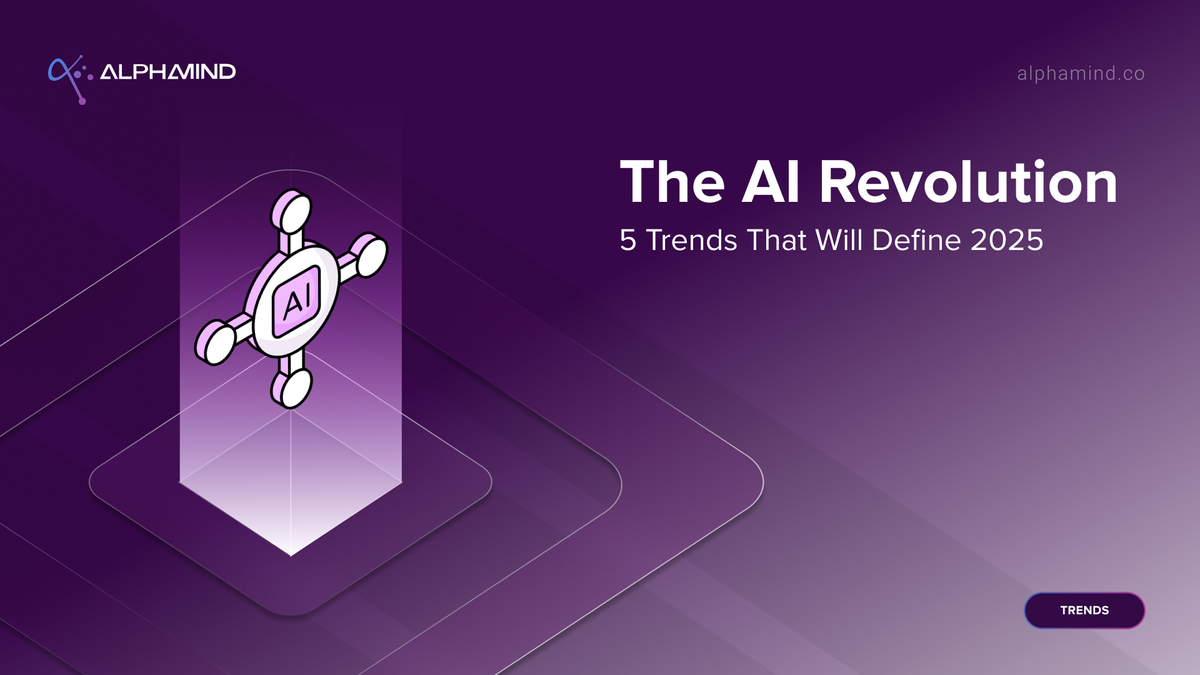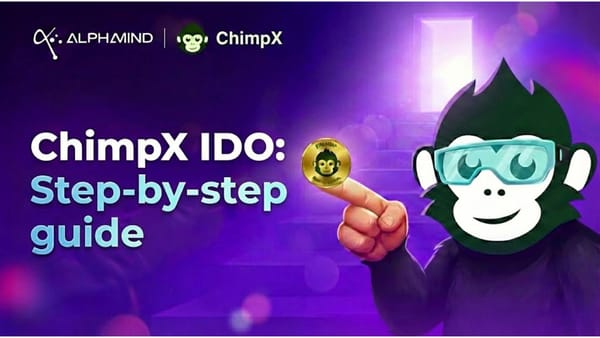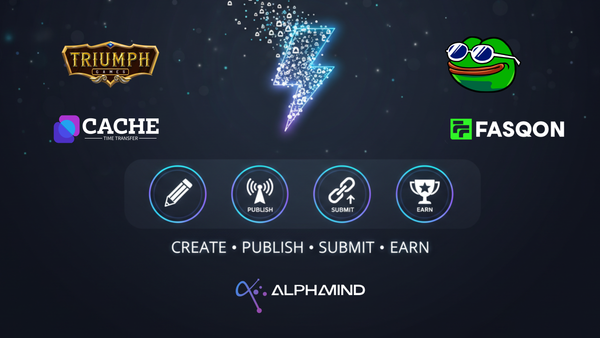The AI Revolution: 5 Trends That Will Define 2025

AI is evolving at a ridiculous pace. What was cutting-edge last year is already old news, and the next wave of breakthroughs is coming faster than we can process. From AI agents running entire workflows to new ethical dilemmas in synthetic media, 2025 is shaping up to be another wild ride.
Let’s break down the five AI trends that will dominate the conversation this year.
1️⃣ AI Agents: From Tools to Autonomous Operators
We’ve moved beyond simple chatbots. The next generation of AI isn’t just answering questions—it’s acting on its own. AI agents are being trained to complete complex, multi-step tasks without human oversight.
- Imagine an AI that doesn’t just write an email for you but also schedules the meeting, follows up, and preps a summary of key points—all without you lifting a finger.
- Startups like Auto-GPT and OpenAI’s DevDay hints suggest that fully autonomous AI assistants will soon be embedded into daily workflows.
- AI agents will disrupt industries by handling customer service, sales, coding, research, and more, with minimal human input.
This shift means fewer repetitive tasks for people and more productivity, but it also raises big questions: How much decision-making should we hand over to AI? Where’s the line between automation and autonomy?
2️⃣ AI-Generated Media Will Break the Internet (Again)
AI-generated images, videos, and voices are getting scarily good. Tools like Sora (OpenAI’s rumored video model) and ElevenLabs are pushing synthetic media to Hollywood-level realism.
🚨 But here’s the problem: The better AI gets, the harder it is to detect fake content.
- Deepfake scams are already fooling banks and governments.
- AI-generated influencers (like Lil Miquela) are making real money.
- “AI actors” might replace real ones in movies and games.
As AI-generated content floods social media, expect new policies, detection tools, and maybe even laws trying to keep up. Will we even trust what we see online anymore?
3️⃣ The Open-Source AI vs. Big Tech Battle
The AI arms race isn’t just about who builds the best models—it’s about who controls them.
🔥 On one side: Open-source AI projects (like Meta’s LLaMA and Mistral) are making powerful models free for anyone to use.💰 On the other: Big Tech (OpenAI, Google, and Anthropic) is keeping its best models locked up behind APIs.
This year, the fight will heat up as:
- Regulators push for transparency in AI development.
- Open-source models get better, cheaper, and more widely adopted.
- Companies struggle to balance security risks with innovation.
Who wins? Open-source AI means more accessibility but also higher risks (bad actors can misuse it). Corporate AI is safer but limits access. This battle will shape how AI evolves in the next decade.
4️⃣ AI-Powered Code: The Rise of “No-Code” Development
You’ve probably heard of GitHub Copilot and ChatGPT’s code generation. But 2025 will take AI coding to another level: full-on app development without human programmers.
🔹 AI-powered tools will let anyone build software just by describing it in plain language.🔹 Startups are already using AI to auto-generate websites, mobile apps, and even blockchain smart contracts.🔹 “Citizen developers” (non-programmers) will start creating AI-powered apps, disrupting traditional software development.
For devs, this is both exciting and terrifying. AI will make coding faster, but it also means some programming jobs will shift—or even disappear.
5️⃣ AI and the End of Traditional Search Engines
Google’s dominance is under threat. AI-powered search assistants are changing how we find information.
- Instead of searching and clicking links, AI will give instant answers (no need to visit websites).
- SEO is shifting as AI models pull data directly from sources instead of ranking pages.
- Startups like Perplexity AI and Microsoft’s Copilot are already changing search habits.
If AI chatbots become the new search engines, entire industries (journalism, blogging, e-commerce) will have to adapt fast. The question is: Can Google keep up, or will AI kill traditional search?
Final Thoughts: Are We Ready?
AI is no longer just a tool—it’s becoming a decision-maker, content creator, and even a replacement for human skills. The speed of change is insane, and 2025 will test how well we can adapt.
The big questions:
- Will AI enhance our lives or replace us?
- Can we trust what AI creates?
- Who controls the future of AI—open-source communities or Big Tech?
One thing is clear: The AI revolution isn’t coming—it’s already here.
🔗Connect with AlphaMind
Twitter | Telegram | Telegram Community | Discord | YouTube | Dashboard





